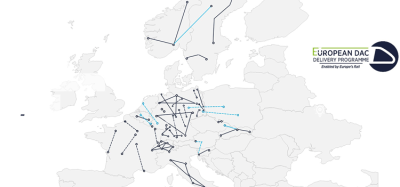Why ‘building back better’ must make a difference for women in the workplace
Posted: 8 June 2021 | Jo Moffatt | No comments yet
Jo Moffatt, Engineering Practice Director for Strategic Rail at Atkins, writes how the coronavirus pandemic has shone a light on inequality in the workplace, and presents a real opportunity to address this bias to the benefit of women, STEM related industries, and society as a whole.
As vaccinations spread and lockdowns ease, attention turns to the world after COVID-19. Few want simply to return to the way things were before; instead, there’s a desire to improve and ‘build back better’. However, for engineering to come back stronger, we must first acknowledge how the pandemic has changed our industry and society – and the inequalities that it has precipitated and exacerbated.
…for engineering to come back stronger, we must first acknowledge how the pandemic has changed our industry and society – and the inequalities that it has precipitated and exacerbated.
Women have been disproportionately affected by the pandemic. From childcare to housework to care work and homeschooling, they’ve borne a greater share of the domestic responsibilities, particularly during lockdowns. They’ve also suffered more job losses. According to the World Economic Forum, women account for 54 per cent of pandemic-related unemployment worldwide despite only representing 39 per cent of all workers. And in STEM (Science Technology Engineering and Mathematics), it would take another century before women are as equally represented as men at the current rate of progress.
…what can we do in our industry to create a fairer workplace, one which acknowledges the differing needs of men and women?
Yet the pandemic has also created opportunities. It has disrupted the status quo, exposed the inadequacies of the existing systems, and shown that change is indeed possible. By accelerating remote working and generating conversations about inequalities in the workplace, it has opened a chance to reshape the world of work. And there is willpower, too: a YouGov poll taken in mid-2020 revealed that just nine per cent of Britons wanted a return to ‘normal’. As the pandemic is slowly overcome, we must be careful that the moment doesn’t pass. So, what can we do in our industry to create a fairer workplace, one which acknowledges the differing needs of men and women?
Pandemic problems
Along with all the obvious changes to society, the pandemic has had much more insidious effects. For example, for millions of people working from home has eliminated one of the most irksome features of contemporary working life: the commute. Those working from home found themselves with more time, and yet for many these newly-acquired minutes were poured into work. According to research cited by The Guardian, employees in the UK have increased their working week by almost 25 per cent. Given that women are disproportionately responsible for childcare such as homeschooling, any ‘extra time’ saved by their commute’s abeyance was much more likely to go into domestic chores than into their work. Consequently, one of the pandemic’s home-working benefits was felt much more by men than by women, potentially impacting women’s careers.
Just 16 per cent of engineering graduates in the UK are women, creating a long-term underrepresentation of women in our industry.
In engineering, the problem is even more acute. Just 16 per cent of engineering graduates in the UK are women, creating a long-term underrepresentation of women in our industry. Even those women who do become engineers often find their careers curtailed. Prior to COVID-19, Engineering UK records showed that 57 per cent of female engineers drop off the register of professional engineers before the age of 45, compared to just 17 per cent of men. With less representation in the industry, women may struggle to have their concerns and needs heard at a senior level.
The pandemic has also affected outreach. While it’s helped widen the number and types of schools we can engage with, it’s also curtailed work experience, preventing interested teenagers and young graduates from gaining valuable engineering experience in the earliest moments of their career. It can feel like progress has stalled.
Action, not words
At Atkins, we have established global employee networks online, to help ensure mutual support to groups of employees, from a ‘Menopause at Work’ group to a Neurodiversity network.
The good news is that there are lots of options available, even within our industry. The first step is to start listening. Only by opening ourselves to the experiences of the affected groups can we understand how they are being affected. At Atkins, we have established global employee networks online, to help ensure mutual support to groups of employees, from a ‘Menopause at Work’ group to a Neurodiversity network. This helps those undergoing potentially isolating experiences to share them among like-minded colleagues. Moreover, each network has senior board-level sponsorship, enabling the business leaders to better understand the challenges and needs of the full range of their workforce. In turn, this helps them to provide proper support and to represent those experiences in their decision-making.
It’s crucial to create a workplace environment capable of fostering these kinds of conversations. Company culture can either encourage or stymie openness. Senior leaders must indicate that diverse opinions and experiences won’t just be tolerated, but actively sought out. Psychological safety is paramount, otherwise sharing personal viewpoints is simply too emotionally fraught and professionally risky. Managers must commit to inclusion by communicating that any perspective will be accepted and respected, no matter how divergent from the perceived ‘norm’.
…showing senior leaders what can be gained from propagating inclusive practices – rather than the threats of failing to do so – can help to win broad support across the entire organisation for change…
In order to establish this kind of openness, it’s vital to acknowledge the potential push-back. Those who are perfectly happy with the existing systems and cultural rules might perceive these changes as threats. Many men struggle to cope with conversations about the challenges faced disproportionately by women, often because they are afraid of somehow saying ‘the wrong thing’. Acknowledging inequalities can swiftly lead to hostility against those who are seen to perpetuate them, consciously or unconsciously. In turn, this can create mistrust, resentment and fear. Therefore, showing senior leaders what can be gained from propagating inclusive practices – rather than the threats of failing to do so – can help to win broad support across the entire organisation for change, not just among affected groups and their sympathisers.
The benefits of diversity
These changes needn’t be painful. There is a whole world of benefits to be unlocked from diversity and inclusiveness. Over and over again, researchers have shown that diverse companies outperform homogenous ones. According to McKinsey, ‘Companies in the top quartile for gender diversity are 15 per cent more likely to have financial returns above their respective national industry medians’. When racially diverse companies are surveyed, the effect is even more pronounced. In a survey of over 21,000 firms across almost 100 countries, the Peterson Institute for International Economics found that ‘the presence of women in corporate leadership positions may improve firm performance’. And research cited by Forbes suggests that this effect may be growing.
Employees who feel listened to and understood are less likely to feel alienated or to resign.
Rather than being a painful conversation threatening wrongdoers with ‘cancellation’, we need to show that a more open, compassionate and diverse workplace will be of benefit to everyone. Understanding one another on a more emotional level can strengthen bonding and togetherness. Employees who feel listened to and understood are less likely to feel alienated or to resign. Women who are properly supported through, for example, motherhood are more likely to yield the full spectrum of their talents to their company than those who are marginalised. There’s so much talent being misused, misunderstood or just wasted.
Building ‘growth mindset’ habits is another example of how diversity can help to establish better working practices.
‘Paying it forward’ shows how we can inspire positive change compassionately. It encourages those who have benefited from support to pass it on to others. In this way, privilege can be shared not through punitive redistribution, but through recognising how we have been aided in our own careers and then spreading it to others. The ensuing ripple effect extends skills, mentoring and assistance in a generous, grateful and inclusive way. Rewarding these behaviours can quickly create a virtuous cycle, where privilege isn’t hoarded but openly shared.
Building ‘growth mindset’ habits is another example of how diversity can help to establish better working practices. Rather than seeing people’s qualities as ‘fixed’ or innate, a growth mindset culture encourages us to see our basic qualities not as static, but as things you can cultivate through effort. A company predicated on a ‘growth mindset’ culture can develop staff who more readily discuss criticism and difficulty, find and establish better solutions and enjoy and support the success of others.
Beyond bias
Our workplaces will look very different after the pandemic. If we really want to ‘build back better’, we have to capitalise on the unexpected benefits brought by COVID-19, while simultaneously ensuring that once the pandemic is over we don’t just return to the way things were before.
Our workplaces will look very different after the pandemic. If we really want to ‘build back better’, we have to capitalise on the unexpected benefits brought by COVID-19, while simultaneously ensuring that once the pandemic is over we don’t just return to the way things were before.
The lockdowns have accelerated the shift to remote working, which has helped to eradicate the bias encountered by home-workers – who, before the pandemic, were much more likely to be women than men. The pandemic has also helped create a feeling of togetherness and camaraderie, with greater attention paid to those in need and a renewed determination to deal with inequality. We must maintain these qualities beyond the pandemic, so that rather than simply recreating the pre-pandemic world, we can establish a better one.
In the past, the marginalisation of women was deemed to be a ‘gender issue’, relegated to the sidelines. Nowadays, people are realising that problems arising from bias affect society as a whole. It creates divisions. It generates discontent. It perpetuates unfairness, from one generation to the next, weakening faith in meritocracy and excluding the under-priviledged. Now the link between bias and social problems is belatedly being acknowledged, but something else has also been realised: how the changes we make together can have a huge impact.









